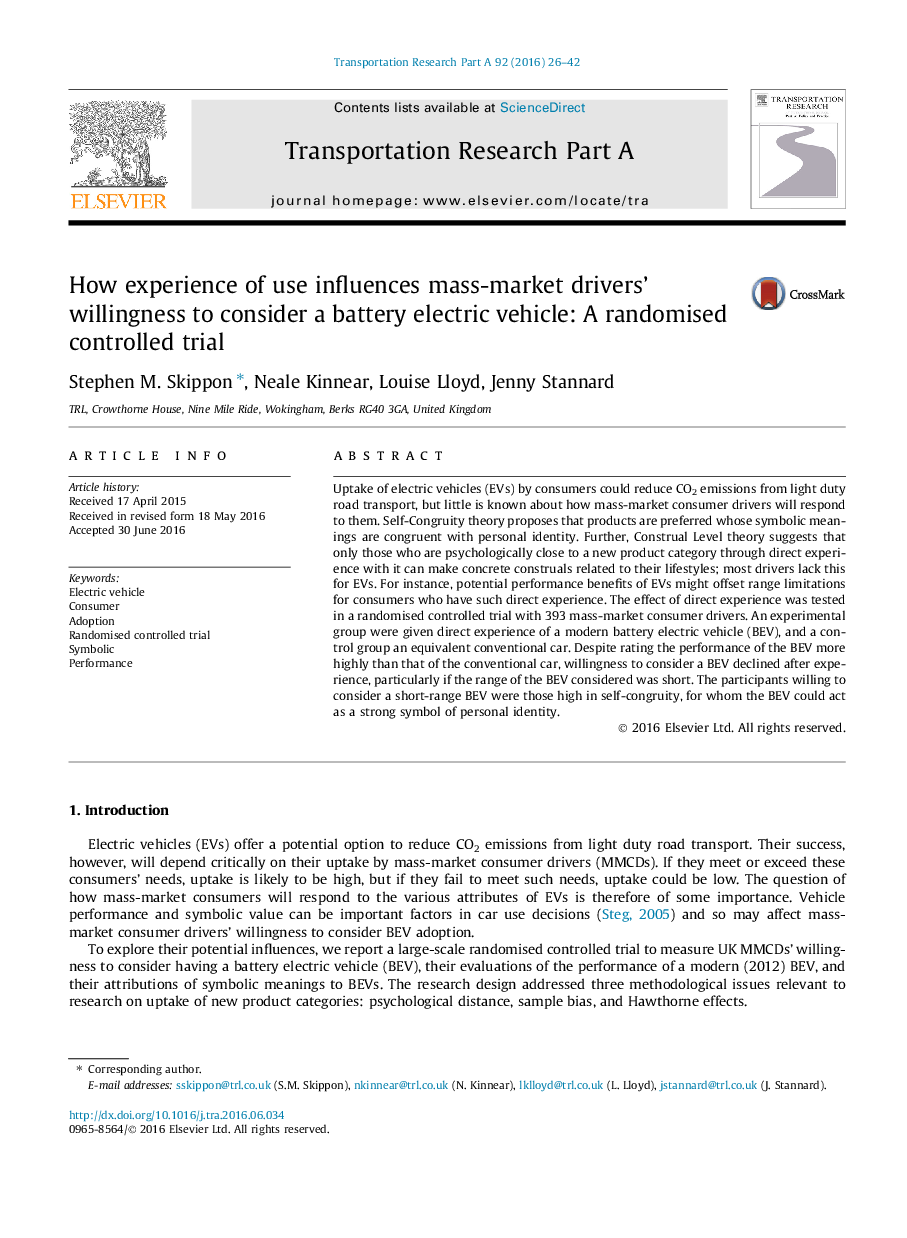| Article ID | Journal | Published Year | Pages | File Type |
|---|---|---|---|---|
| 310573 | Transportation Research Part A: Policy and Practice | 2016 | 17 Pages |
•RCT investigating mass-market consumer drivers’ responses to experience of using a BEV.•Mass-market consumer drivers evaluate.•Direct experience reduces mass-market consumer willingness to consider adoption of BEVs.•Mass-market consumer drivers attribute specific symbolic meanings to BEVs.
Uptake of electric vehicles (EVs) by consumers could reduce CO2 emissions from light duty road transport, but little is known about how mass-market consumer drivers will respond to them. Self-Congruity theory proposes that products are preferred whose symbolic meanings are congruent with personal identity. Further, Construal Level theory suggests that only those who are psychologically close to a new product category through direct experience with it can make concrete construals related to their lifestyles; most drivers lack this for EVs. For instance, potential performance benefits of EVs might offset range limitations for consumers who have such direct experience. The effect of direct experience was tested in a randomised controlled trial with 393 mass-market consumer drivers. An experimental group were given direct experience of a modern battery electric vehicle (BEV), and a control group an equivalent conventional car. Despite rating the performance of the BEV more highly than that of the conventional car, willingness to consider a BEV declined after experience, particularly if the range of the BEV considered was short. The participants willing to consider a short-range BEV were those high in self-congruity, for whom the BEV could act as a strong symbol of personal identity.
